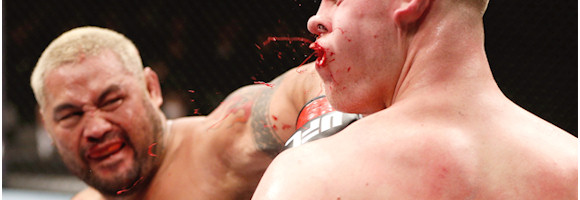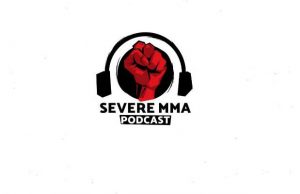

If someone had told Art Davie and Rorion Gracie on the eve of UFC 1 that, almost 21 years to the day later, their little experiment, to establish which of the Martial Arts was most effective, would be a global phenomenon set to plant its flag in a 14th country, would they have been taken seriously?
Not likely. Yes, Davie and Gracie knew their product, although still in its nascent stages, had potential for growth. But how could they have possibly foreseen that famous night in Denver, Colorado would irrevocably alter the sporting landscape forever.
Hyperbole notwithstanding, if not for those crude beginnings, could such a chain of events been set in motion? We’ll never know. If November 12th, 1993, was the birth of the Ultimate Fighting Championship and, by extension, Mixed Martial Arts then, perhaps, it will be born again on Saturday night in Mexico City.
Well, sort of. Look at it this way; it’s no big secret that UFC’s viewership on Fox, as well as pay-per-views, have not only stagnated, but steadily declined over the last number of years. And, while ticket sales remain as strong as ever, even core audiences have become jaded by the repetitive cycle of one generic event after another. Zuffa have reached a juncture where, for now, the supply largely outweighs the demand.
Which is why the timing for the inaugural show in Latin America could not be better. This venture has been meticulously germinated over a considerable period of time and was shrewdly prefaced by TUF Latin America, with UFC’s Hispanic totem, Cain Velasquez, positioned as coach.
The son of Mexican emigrants, the heavyweight champion has always been forthright in expressing pride in his heritage, evidenced most overtly by the ‘Brown Pride’ tattoo which festoons his chest. The UFC’s offices must have been rife with panic when news emerged that Velasquez had injured his knee and would be unable to defend his title against opposing coach and No.1 contender, Fabricio Werdum, as originally planned.
Luckily, all 21,000 tickets for the Arena Cuidad de México, had long been sold out, having been lapped up within eight hours of going on sale. Yet, even with the loss of such a vital cultural figurehead in this expansion, the show must go on. Thus, Mark Hunt, the owner of one of the most compelling stories in MMA, will face Werdum for the interim title, on three weeks’ notice.
Just like Royce Gracie at UFC 1, Hunt is a tremendous underdog, baring little resemblance to the accepted perception of a prize-fighter. The two make for an interesting juxtaposition; while Gracie was a skinny, unassuming 26-year-old in a gi, Hunt is a plump, quietly spoken 40-year-old father of six, who wears ill-fitting Bermuda shorts into battle. He’s a born a born-again-Christian, to boot.
https://www.youtube.com/watch?v=PGunUlEd50A
Arriving in the UFC on a five fight losing streak, as part of their absorption of Pride, Hunt was offered a severance on the remainder of his contract, but elected to fight instead. He would lose his debut bout to Scott McCorkle at UFC 119 in 2010, but since then his career has been on a near uninterrupted, KO-driven upward trajectory, which has included some of the most memorable wars in heavyweight history, most notably with Antonio Silva and Junior dos Santos.
To see such a compelling tale reach its crescendo, should more than sate those Mexican fans still disappointed by the Velasquez’s withdrawal. The UFC, too, may benefit from the champion’s misfortune; to be able to pin a narrative this absorbing on the back of such a high-profile event, is a spin doctor’s proverbial wet dream.
If that wasn’t enough, throw in the four TUF finalists on the verge of realising their long-held dreams, and you have heart-wrenching subplots abound. The presence of high profile Latin American fighters such as Kelvin Gastelum, Denis Bermudez and Ricardo Lamas in the Octagon, with Velasquez sitting cage-side, only increase the chances of an unmitigated success.
Mexico is a nation that has consistently excelled in boxing, with close to 400 world champions to prove it, so the mass acceptance of MMA feels all but inevitable. With a population of almost 118m, unaccustomed to global sporting events arriving on their shores or those of most of its adjoining countries, Mexico offers the UFC the chance of a rebirth, in a market place that couldn’t be further away from saturation. Timing is everything.



